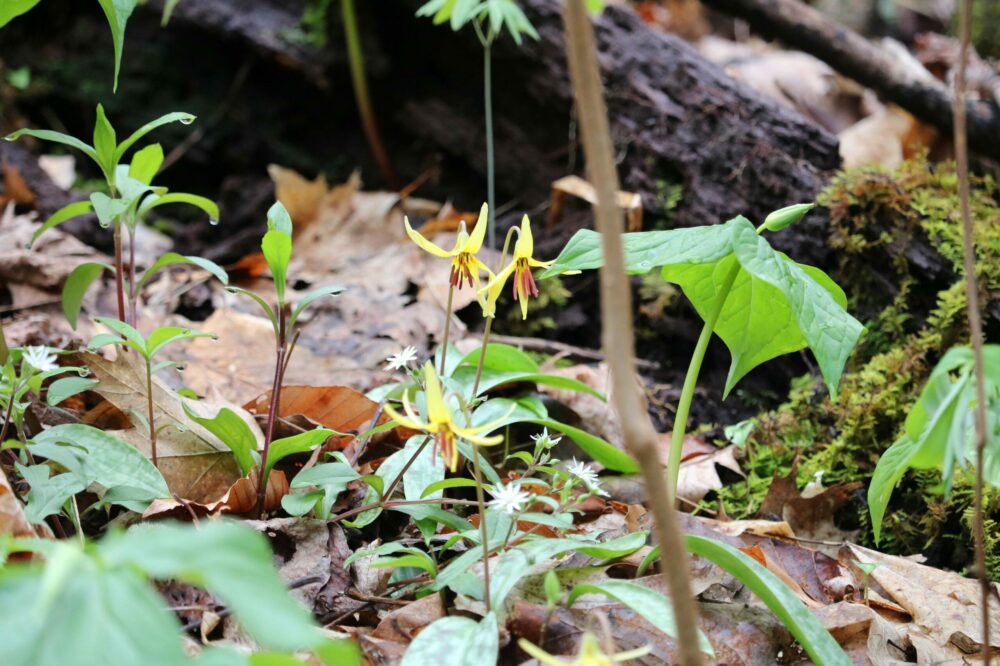Seeing the Dangers of “Plant Blindness”

By Torry Nergart, Conserving Carolina’s Conservation Easement Manager
A term has arisen from recent studies that explore the ever-widening schism of humans disconnected from their natural world. Computer screens, interstate highways, over burdensome work schedules and the overall pace of “modern” living seems at best a division splitting our collective attention that cuts off relationships, including the relationship with our shared natural world.
The term “plant blindness” refers to an inability to notice and appreciate the significance of plants.
Since plants do not move as fast as some other living creatures, we tend to assign them to the “backdrop” of our experiences. Plants can appear to us as passive or even not considered to be alive. If noticed at all, plants must provide pure human utility or otherwise be pushed back by spraying, mowing and paving. We are not learning and teaching the myriad uses of plants and how to steward the natural world in a mutual, interdependent way. Centering human needs in controlling plants has led to vast monocultures of corn and soy while destroying habitat for the insects that pollinate plants.
A chain of reciprocity with other living things has been broken. This imbalance in our natural systems gives the appearance of subjugation of the environment by us humans. Any seeming comfort from this temporary dominion is shadowed by its unsustainability. We cannot escape the accounting of ecological laws. All our cultural cleverness in attempting to exercise dominion over the natural world will never meet all our own needs, nor will it sustain the lives of the beings that provide us with what most all we need to live: plants.
Plants make up about 80 percent of all the biomass on Earth versus the other 20 percent of animal life which is mostly in the ocean, yet around 15 percent of content in the average biology textbook is dedicated to plants and the rest to animal life. Major colleges and universities are dropping botany programs in favor of biomedical programs which ironically reduce the amount of new drug discoveries to be made by botanical investigation.
Look to ways you can cure your own “plant blindness” and begin to learn how plants are the strong foundation that human kind is built on. After all, plants are the one thing on Earth that take solar energy and converts it into the air we breath and food we eat!